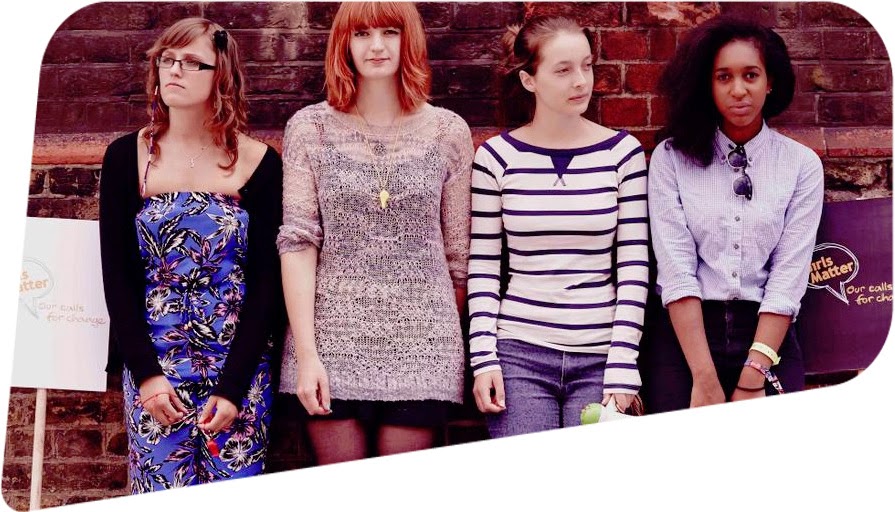I keep reading depressing articles telling me that women over fifty become invisible. Not using Potter-esque invisibility cloaks sadly which might be really fun although the Chinese are actually working on a real one. But rather a more prosaic form of invisibility; no longer being seen by the world as a sexually relevant being.
You may feel that missing out on wolf whistles from building sites and strange looking men standing too close to you on the underground is a bonus. But the articles tend to be written wistfully - with a sense of loss and a view of a depressing future where you descend gradually into dessicated old age until you're grateful if the postman says hello. We are encouraged to feel sorry for women as they get age - poor grey haired things wondering whether to worry more about the guy they're talking to eyeing up the younger women in the room or whether they will die alone and be eaten by cats.
 |
| http://justcharlee.ca/voices/ageism-aging-and-invisibility/ |
Try as I might, I can't feel wistful and here's why. Although men don't flirt with you in queues or offer you their seat, they do stop throwing around casual sexist comments in the workplace. I would go further and say that I don't worry very much about casual everyday sexism aimed at older women. Plenty of research shows that sixty is the new forty and that after forty we stop worrying about what other people think. Even the Material Girl is grabbing ageing proactively. And who's going to argue with her? But I seriously worry about the apparently uncontrollable growth of sexism aimed at younger women.
 |
| Source Huffington Post |
I have been following the Everyday Sexism project which was created to raise awareness of the 'normality' of this kind of behaviour. Founded by Laura Bates when she got fed up with being hassled by men, it exploded last year on Twitter @Everydaysexism. Take a look at the stories women are posting. Many of them are young and the stories are often shockingly everyday.
 |
| Source Belle-Jar.com |
This trend is reflected even more starkly in research coming out of Bristol University this week which was widely picked up in the media. Its headline finding - that four out of ten teenage girls experienced sexual coercion in relationships up to and including violence for a fifth of the large
sample - stopped me in my tracks.
What is going on? What has happened to our young people? Laura Bates says she gets asked this all the time and she doesn't have enough data or easy answers. But other findings of the Bristol Survey which included 500 teenage boys might give us a clue. Says the summary:
"Almost four in ten (39 per cent) boys in England aged 14-17 admitted they regularly watched pornography and around one-fifth (18 per cent) strongly agreed with statements such as: “It is sometimes acceptable for a man to hit a woman if she has been unfaithful.” And: “Women lead men on sexually and then complain about the attention they get.”
Another survey - this time for the Girl Guides reflects very similar data - this time highlighting that girls as young as seven are suffering sexual taunts from boys.
So what if anything can we do about this?
Talk to your daughters - Tanith Carey wrote about the issue in last weekend's Times aimed at mothers - urging them to talk to their daughters openly and probably earlier than you think about issues such as sexting, peer pressure and body image.
Stay informed - Keep track of Laura Bates on Everyday Sexism or by following her blogs on the Guardian.
 |
| #girlsmatter |
Raise awareness - We can add urgency and raise awareness by including this topic in the wider narrative of women's equality and supporting women's ability to achieve their full potential as future leaders. If our daughter's confidence is suppressed by these new challenges our society is experiencing it could have very damaging consequences. We could take equality back decades.
Let's make sure we use the social media channels that are being used to harm our young women to stand up for their futures.